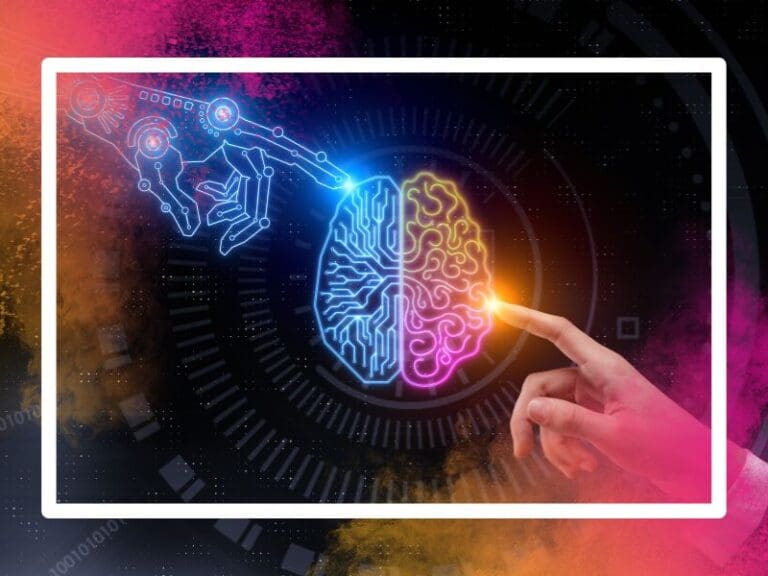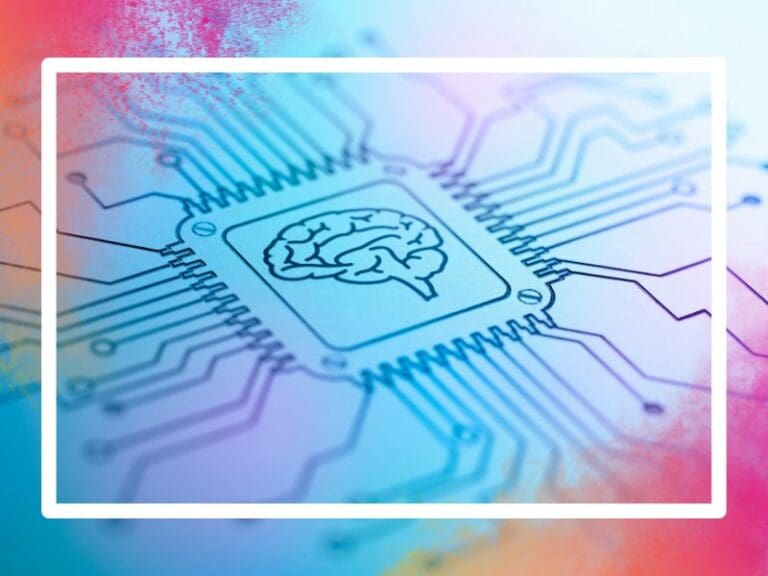hello everyone thank you for tuning in
again I am Kaye bitman the content
director at CH can code and today we are
discussing opportunities and challenges
AI presents in the health sector now the
emergence of AI in healthcare has
completely reshaped the way we diagnose
treat and monitor patients applications
include finding new links between
genetic codes performing robot assisted
surgeries improving Medical Imaging
methods and personalizing treatment
options to name just a few however the
World Health Organization has recently
called for a rigorous oversight to
ensure that AI is used in safe effective
and ethical ways now luckily I’ve got
the wonderful Aisha ikal i e senior
member and Engineering trainer at the
advanced manufacturing trainer center
with me today and she’s going to help me
discuss the challenges and opportunities
of AI in healthcare welcome Aisha thank
you so much for joining us today today
hi Kelly thank you so much for having me
on CH can code thank you for for taking
the time out now we’ve got a lot to
address um can we get started with a
little bit of background about yourself
please uh this is Aisha kbal and I am a
senior member of i e and Engineering
trainer at Advanced manufacturing
Training Center which is a part of
manufacturing Technology Center in
United Kingdom and I basically hold a
master’s degree in electrical
engineering and I’m currently pursuing
my PhD in electrical and electronics
engineering as well uh from the
University of Glasgow uh before joining
uh amtc as an engineering trainer I have
been uh working as a lecturer in a
university for around 9ine years and at
NF college for around two years as well
so basically I have around 12 years of
experience in academics and I have been
involved in research as well uh I have
got nine Publications including four
journals three conferences and uh two
book chapters as well and I have been uh
visiting um different universities as a
judge in engineering project
competitions as well and i’ have been
evaluating uh the as the Master’s thesis
examiners and also have been uh serving
as a reviewer for many different
journals amazing I that’s definitely one
of the most impressive backgrounds I’ve
before yeah thank you and uh and last
but not the least I’m a very proud
embassador uh for women in engineering
and women in stem incredible and I I
suppose um what I wanted to ask you
about that is in the minute what you’re
doing you’re studying um electrical
engineering what what what happened
there how how did you that’s quite uh
Niche how how did you end up moving in
in that area and how are you finding
that are you the only woman in that area
what is that like uh no there are
actually like uh because I did my BC and
MSE in electrical engineering from
Pakistan so luckily in in my country
there were uh like quite a lot of women
in this field so when I joined uh when I
started to choose engineering as my my
like field or as the career or
profession and when I got admission into
my degree in University then there were
quite a lot of women in that field so it
was not very unusual or difficult for me
uh to uh carry on uh in this profession
and uh that’s why like uh there were
quite a lot of job opportunities as well
and uh that’s why it was like quite easy
for me uh to get into this field as uh
how I chose this field was uh when I
completed actually my a levels uh which
is actually called intermediate in my
country I was actually interested in
quite a lot of uh subjects um from my
school and college level uh that was
biology chemistry physics maths so I
liked all of the subjects equally well
so it was quite difficult for me to
choose uh which field uh I should take
up as profession or career because I
likeed Lally everything so but finally I
CH chose uh or decided to choose for
electrical engineering uh because of my
interest in physics and Mathematics as
well so and when I went into the
university when I got admission and I
started my degree uh I realized that
there were quite a lot of women in my
Engineering University in all different
uh types of engineering be it mechanical
civil or any type of engineering so I
think it was like uh quite
encouraging uh and when I moved to UK uh
then I saw uh that there are different
geographical Trends and there is a
geographical disparity in uh like you
know the number of women uh who actually
like you know take up stem careers and
who uh get stem education and continue
their careers as well in that so when I
saw this disparity uh then I started
digging deep into it and I started
studying more about into it why the
trends are like that and uh that’s why
that’s where I was like you know
to uh become an ambassador for women in
stem or women engineering so that I can
motivate uh other females and I can be
you know that symbol or that inspiration
uh so that more uh women can join this
field in this part of the world as well
yes and that’s great is that that you’ve
experienced that because I I have heard
that before um about Pakistan and how
you know it’s very equally split when it
comes to um girls taking up stem
subjects so for you to have experienced
that when you come to the UK and you
think what what in Earth is the problem
like there there isn’t a stigma around
it where I’m from one Earth is the
problem over here but yes as you have
noticed we do um have an issue with
encouraging more girls um to take up uh
you know study in in certain areas
um and it’s fantastic that that you have
become an ambassador in that area um to
share your own experiences um we have a
lot to talk about today about AI in the
health sector um so uh I would like to
ask you because artificial in
intelligence seems to be on everyone’s
lips at the minute can we start with how
how has AI helped Advance the health
sector um as all other fields of life
life AI has tremendous potential when it
comes to health care as well and not
only for early and accurate diagnosis of
diseases but also for the treatment and
to develop AI assisted surgical robots
as well and AI has facilitated the
development of advanced variable
technology as well and different medical
devices that can actually monitor Vital
Signs and they collect data on Patients
health in real time and these devices
like when coupled with AI algorithms
they enable remote patient monitoring
and early detection of uh potential
health issues as well and AI can also
speed up drug Discovery research and
clinical trial processes uh which not
only cuts down the time but the cost as
well so before it used to take uh almost
12 years according to a research uh when
a drug uh starts to be like investigated
Ed or researched in the lab and then
when clinical trials are done and when
finally the testing is completed and it
goes to uh the patients so but because
of AI this time can be reduced uh you
know to a great extent so that’s why I
think AI has a great potential in the
healthare sector uh from many different
aspects yes definitely and and you
mentioned there the two biggest ones
time time and cost which you know most
um B businesses or sector are always
looking to improve their Roi in those
areas but 12 years to to get drugs
through um it’s it’s quite a commitment
so yeah anything that can be done there
to reduce um that time if you don’t have
those resources and and on the the topic
of resources um here in the UK the NHS
is short staffed um and resources are
very stretched here um do you think
could AI be the answer to some of these
problems um AI can certainly be a
solution to many of these problems for
example AI can be used to analyze extra
images and mammograms that frees up
Radiologists to spend more time with
patients or to screen greater number of
people more quickly and it’s not only
time-saving but it provides more
accuracy as well and in the same way it
can help clinicians read the brain scans
more quickly it shortens the time it
takes for patients to be treated
and that’s how you can give them a
better quality of care and it can also
help supporting people in virtual WS who
would otherwise be in hospital to
receive the care and treatment they need
in their own home or usual place of
residence so remote monitoring
Technologies such as applications and
medical devices mobile applications Etc
can also assess patients Health and Care
while they are being cared for at home
so I think if we use use all these ways
and we Implement AI to perform all these
uh functions I think um the short
staffed problem or the limited resources
problem can be solved uh to a great
extent yes definitely and and I I love
as well um your attitude is very
optimistic about how we can use Ai and
there’s very you know positive um uh the
way that you talk about is very positive
there is a lot of negative press at the
minute about AI um and obviously it does
come with its challenges as well you
just touched upon something there about
accuracy and at the minute I know a lot
of people were wondering when they use
AI do you still everything has to be
checked by a human as well there’s still
there’s there’s so much up in the air um
I wanted to ask you a little bit about
what are the challenges to AI in health
sector obviously it’s quite a it’s quite
a touchy subject it’s quite you know
you’re dealing with People’s Health you
know things have to be accurate um so
what do you think those challenges uh
are uh yes there are challenges because
the widespread adoption of AI in uh all
other fields as well but especially in
healthcare will take time and effort as
well because definitely it’s a sensitive
uh matter or it because it’s related to
directly related to the patient health
and their lives uh but if we Implement
uh then it can help us a lot as well
because it has uh quite a lot of
promising features which which can
improve uh the quality of life and the
health care sector in general it can
help to save lives so I think it’s
important uh that it is implemented with
care it is implemented or used but with
care and the challenges are tackled
carefully for example the biggest
challenges can be the accuracy of e
system systems uh in diagnosing and in
uh for example determining or
prescribing personalized treatments or
medicines so accuracy is uh obviously uh
a matter of concern then fairness and
transparency then data protection and uh
the security and privacy and with the
help of if you meet all these challenges
uh or if you overcome all these
challenges then obviously patients trust
can be uh established as as well and the
trust issue is not only on the patient
side it’s also on the clinicians and
practitioners side that how much they
are able to trust the diagnosis for
example done by an AI system so I think
if AI system is implemented with care uh
these challenges can be overcome there
is a lack of skilled uh Workforce as
well because AI systems are complicated
so as AI systems will spread more uh in
the coming years which we are expecting
uh there will be more skilled Workforce
prepared to use AI systems as well so
that problem will also be uh can also be
overcome when you will have obviously
more skilled Workforce who know how to
implement those systems and how to use
those systems with care yes I love the
fact that you mentioned um the patients
trust there because you’re right and
that needs to be built from from all
areas that that it’s not something that
is done trust obviously is not built
with with words it’s built with action
and um whether or not uh patients trust
what is being used um is something that
is going to take time to actually you
know prove that these things um work and
as you said just implementing them with
care um to to ensure that that trust is
built over time I love the fact that you
mentioned skills as well it’s something
that comes up so often in the tech
sector that you’re always the tech
sector is just always seems to be
looking for skills in the next area and
a lot of jobs that you know a lot of the
ladies on the podcast that we speak to
what they trained for at University
those skills they don’t even use anymore
and they’re learning new skills and new
skills and um I love the fact that you
just pointed that out a lot of the jobs
that are are going to appear in the
future they don’t even the skills don’t
even exist for that yet it’s um it’s a
it’s a fast-paced and fun industry to be
a part of isn’t it technology that you
know we don’t even we haven’t even
filled that that skill shortage just yet
true as we’ve mentioned already high
income countries um are already benefit
benefiting from uh AI um but what about
developing nations do you think AI can
have an impact in countries um who are
resource Po and and those that don’t
have access to health care um uh
professionals do you think that that AI
can can help them in that area
definitely uh AI holds a tremendous
promise for transforming the provision
of healthcare services in resource po
settings as well uh for example medical
expert systems can uh support physicians
in diagnosing patients and choosing the
treatment plans as is done in like high
income countries so for some conditions
they can also act in place of a human
expert if one is not readily available
which is often the case in poor
communities and AI is already being used
to predict model and slow the spread of
diseases in epidemic situations around
the world yeah um including in the
resource poor settings as well and for
example Deni fever is a vector bone
disease that has spread rapidly around
the globe in recent years and about half
of the world’s population is currently
at risk because of that uh but
researchers have developed a machine
learning tool to identify the weather
and the land use patterns associated
with the dangi fever Transmission in uh
Manila for example and other places uh
and other countries which are uh dealing
with such epidemics uh can also uh
employ AI or it can also be implemented
to uh predict or slow down or monitor
the spread of the diseases like that
amazing yes um I think that’s something
I hadn’t even thought of just slowing
the spread of disease I I I think from
that question I was thinking you know um
health professionals within the country
and how they work almost similar to what
you were talking about about diagnosis
and things like that but obious the um
uh you know countries that that don’t
have access to to healthcare um uh
compared to you know um other countries
um they have different challenges and
different um problems and as you said
even just slowing uh the progression of
uh the spread of disease um uh would be
is is such an important topic um
especially since we’ve all just come out
the other side of the pandemic as well
I’m sure it’s on everyone’s Minds as to
what happens if the next one breaks out
yeah which is a fault we wouldn’t have
had a few years ago yeah exactly that’s
true um again that was a a positive spin
there’s lots of positive things that can
happen um with AI thankfully um as you
just mentioned there um slowing the
spread of disease would be um obviously
a a positive side to AI um but there is
some level of fear over the advancement
of AI um whether it be the loss of jobs
and I’ve heard a few times on this
podcast um or to machines taking over
I’ve also heard that one on this podcast
too um do you think people have a reason
to worry about AI you think those things
what happen um as we discussed um
earlier also about NHS being short
staffed with limited resources AI can
help solve many problems like these and
not only in healthcare but also in other
sectors the fear is valid the fear that
people will lose their jobs or the
machines are taking over but again what
is needed is to implement AI in such a
way that it can help humans not replace
them so if we use it responsibly for
helping and supporting us and for making
things quicker and better and within
ethical and regulat Regulatory
boundaries I think there is no need to
fearful yes and I feel in the tech
sector as we were talking about earlier
with skills everything moves so fast
there’s always that conversation of job
losses because there’s been advancements
and somebody you know it managers might
feel like they they’re you know
something has come along to really help
them in their jobs for instance and
they’re not going to be needed um but
actually it just free up their time to
do something else it’s not so much you
lost your job the the same with AI I
think it’s it’s the same conversation
it’s kind of as you said how to um how
to help people not replace them um and
help them to do their their jobs in a
different way or to move them on to um
you know freeing up their time to do
other things um you talking about that
with radiologist you know kind of
freeing up their time to be with the
patient more exactly I definitely think
it’s the way that it’s going to be
pitched because there is that fear is
there the minute exactly so just like we
talked about NHS being short staffed and
limited resources so if they employ AI
it means like uh their time and cost and
lot of other things are being saved and
if you can do more accurate diagnosis
for example if we are talking about
healthare or if we are can save patients
lives then like what is better than that
I mean there is like but but the thing
is again that it should be implemented
in such a way that it doesn’t uh result
in the loss of jobs it it should help us
not replace us and when we will follow
this rule that it should help us not
replace us it means automatically we are
not letting the machines take over as
well so the second fear is also gone
with the help of this rule that it
should help us not replace us and also
just we as we were talking uh uh through
this I just thought of um about like
pandemic coid that as a result of coid
obviously many people lost their lives
as well and because uh of the economic
recession many people were laid off and
they lost their jobs as a result of the
pandemic as well so but just like we
discussed that AI can predict or slow
epidemics and pandemics as well so if AI
had been like used for example if it had
uh developed that much by that time when
coid started if we had used AI for
controlling or uh slowing down or
limiting the pandemic or predicting it
well before time or we could do
something about it then as a result we
could save uh you know people from being
laid off from their jobs as well
so it’s just how you implement it or how
you how you deal with it or how and
where are you using it so I think it’s
just about that so because it could help
uh save your jobs or like save many
lives as well if we like had Ed to uh
predict the pandemic or to slow down or
control it so I think there is another
perspective to this as well so instead
of I know that there is a lot of fear
but but is just uh the responsibility is
actually on those people who are
actually implementing it or bringing it
into different sectors or uh that how
they uh implement it and where they
implement it that it should help us not
replace us yes and and that ties nicely
into what we were talking earlier about
you said implementing with care um to to
gain that that trust um from from the
industry and from patients themselves
how can Healthcare authorities educate
patients so the trust for AI can be
developed um as we discussed earlier
that uh most of uh the challenges are
related to obviously accuracy as well if
we talk about health care then obviously
diagnosis and the fairness and the
transparency and data protection privacy
and security of patients obviously data
they are important and how you can build
the trust um is like when you are
implementing an AI system if you ensure
that the system has undergone a rigorous
regime and a clinically acceptable level
of accuracy has been determined and
outputs are reviewed by a staff member
if required the results of the diagnosis
or uh the scans uh when they are read by
AI systems uh should they can be
reviewed uh by a staff member if
required and it is it is also important
that you ensure that any processing is
fair uh the system is like sufficiently
accurate and you understand how it uses
the data and how the individuals would
reasonably expect their data to be used
and people are informed where a decision
has been made by an algorithm and also
like be open and honest and explain the
purposes for for using Ai and be clear
about what you are going to do with the
patient data and uh you can also inform
people of any new uses of their personal
data uh just to ensure that their data
is protected and is secure and uh if you
just ensure that appropriate security
measures are in place I think by taking
all these actions uh you can build
trust yes definitely uh you remind me of
um I had a conversation on here recently
with a lawyer about Ai and she was
saying it is a mindfield at the moment
because things that you just said just
letting a patient for instance know that
a decision was made by an algorithm
they’re things that you know if there is
a problem in the future um it you know
she she said the things that we’re
having to write into you know policies
now and terms and conditions um
surrounding AI um you know obviously the
it the discussion is suddenly blown open
of what to do whether or not your
results are then reviewed by a human
whether or not you you know that or not
um it’s very busy time for
exactly um the EU uh they’re in the
process of drawing up an artificial
intelligence act um what are your
thoughts on regulation is it needed and
to what degree do you think um yes this
act uh actually establishes the
obligations for providers as well as
users uh depending upon the level of
risk from Ai and the purpose of this act
is actually to just to make sure that AI
systems which are used in the EU are U
safe they are transparent they are
traceable and they are uh
environmentally friendly as well so in
my opinion it is a good step towards
making AI systems safe and transparent
and to ensure that AI activities are
performed within regulatory framework
boundaries yeah yeah and I think as we
said it is one of those things at the
moment that is quite up in the air and
but I think uh it is needed um and and
as she said all of that will just feed
into AI being implemented with care
which is definitely um the the main
thing um that people see it as a
positive and that they see all the good
things that are going to come out of it
not the negative um I just wanted to ask
you quick before we finish Aisha I know
a lot of our listeners are going to be
thinking um I would love to go into
career in Ai and in this area and I’m
not quite sure how to get started or
what to do do you have any advice for
our women that are listening that are
thinking where do I get started or is
there anything that you wish that you
had been told before you started working
area uh there are a number of ways in
which you can take it up as a career um
for example I was talking to someone the
other day who has a master’s degree in
data science and Ai and I myself also
studied a course on machine learning
which is actually the basis of
artificial intelligence uh in my PhD
degree so I think uh there are several
ways uh if you start studying about
learning data Sciences which has closed
ties with electrical engineering and
Computer Sciences as well so uh for
example if I did my when I did my BC
electrical engineering degree so I could
take up a master’s degree after that in
data sciences and EI as well so there
are several different ways um I think
you can stay in touch with the latest
updates in AI as well you can also uh
study on a higher or advanced level if
you want to uh learn about it you can
also uh keep yourself up to- dat by
studying different research papers and
the current research work that is uh
going on by different researchers in
this field and if you want to take it up
as a career it’s best to uh do a
qualification or a degree um in uh data
Sciences or like related to machine
learning deep learning and uh artificial
intelligence itself yeah and get started
there lovely that is wonderful advice to
end it on thank you so much we’re
already at a time Isa so thank you so
much for joining us today it’s been a
pleasure um having you on here so thank
you very much thank you very much for
having me on CH can cot it was a
pleasure thank you thank you and to
everybody listening as always thank you
so much for joining us and we hope to








